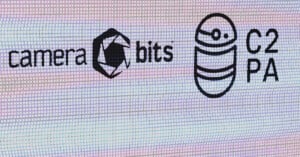
Photo Mechanic Integrates Content Credentials to Fight Fake Imagery
Camera Bits are introducing C2PA Content Credentials technology into Photo Mechanic to help in the fight against disinformation.

Camera Bits are introducing C2PA Content Credentials technology into Photo Mechanic to help in the fight against disinformation.

Back when Sony announced its groundbreaking a9 III camera in November, the company also revealed that the Sony a1 released in early 2021 and the a7S III launched in mid-2020 would receive a significant firmware update "next spring." Spring has sprung, and the rumored firmware update, plus quite a bit more, has arrived.

YouTube announced today that it will require content creators to label AI-generated content that people could mistake for being real.

Today, Leica announced the SL3 camera, which features a big 60-megapixel sensor and better autofocus packed inside a more compact body. But after the M11-P's announcement last year, there is one odd feature not included: content authenticity.

The BBC has embraced the Content Credentials system and will begin slapping X's Community Notes-style explainers beneath imagery to show their authenticity.

Italy-based WuvDay aims to fight against fake news and deepfake content by utilizing the smartphones average people hold in their hands through an onboard verification platform.

Nikon will work with Agence France-Presse (AFP) to verify a new "digital watermark" image provenance function that will act as an additional layer to the C2PA digital signature system from the Content Authenticity Initiative.

Nikon, Sony, and Canon will all reportedly bring out support for the Content Authenticity Initiative's (CAI) C2PA digital signature system in 2024 as the CAI pivots its messaging as a way to combat AI.

A new app called Click will verify photos, adding provenance by harnessing the Content Authenticity Initiative.

Sony and the Associated Press (AP) have completed testing of advanced in-camera authenticity technology, promising to stem the tide of fake images and provide photographers and consumers the tools they need to verify photos.

This week on The PetaPixel Podcast, Chris Niccolls, Jordan Drake, and Jaron Schneider unwrap the mysteries surrounding the application of content authenticity and how it works with cameras, photos, and online media.

At the tail end of its presentation for the new global-shutter-equipped a9 III full-frame camera, Sony announced that it would finally be bringing some of its new software features to select older cameras via firmware updates.

Leica has announced the Leica M11-P, the world's first camera to create a seamless chain of authenticity from capture to publication.
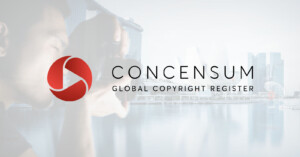
Copyright Concensum, a blockchain-based global copyright registration service that advertised itself almost exclusively to photographers, appears to be completely dead.
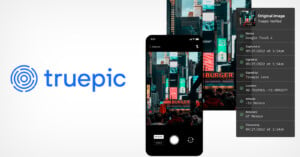
Truepic and Microsoft are working together to pilot a new photo authentication platform called Project Providence, which would combine Trupic's authenticating camera SDK with Microsoft's Azure cloud platform.

Discussion on the topic of "fake news" has become exhausting. Overall, it has lost its meaning. It has gone from referring to actually made-up stories to now just being thrown around for whatever topic someone doesn’t want to hear about.

Adobe has announced a partnership between the Content Authenticity Initiative (CAI) and both Leica and Nikon which will allow the two camera companies to implement image provenance technology into two cameras: the M11 and the Z9.

The Africa Geographic 2019 winner "Tim in Amboseli National Park, Kenya is a great photo. It shows Tim the elephant majestically backlit against a dramatic sky. Except, it didn't win: it was later disqualified for excessive manipulation.

Sony has announced the availability of its in-camera forgery-proof photo technology that cryptographically signs photos at the point of capture which allows photographers to detect if the image is manipulated or tampered with down the line.
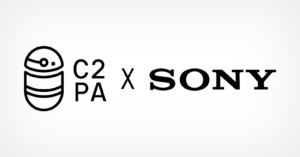
Sony has joined the Coalition for Content Provenance and Authenticity (C2PA) as its latest steering committee member. The C2PA is an open, technical standards body addressing the prevalence of misleading information online.
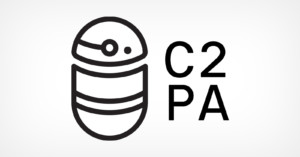
In an effort to combat online misinformation, the Coalition for Content Provenance and Authenticity (C2PA) has released the first-ever technical specification designed to certify the source and history of digital media.

As part of the ongoing efforts of the Content Authenticity Initiative, Adobe has announced "Content Credentials," a new feature that enables creators to attach attribution data to images before sharing them online.
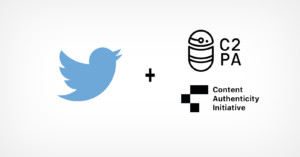
Twitter is the latest tech and media giant to join The Coalition for Content Provenance and Authenticity (C2PA), which focuses on combating misleading and fraudulent online content.

The New York Times R&D team has partnered up with the Content Authenticity Initiative (CAI) to create a prototype that gives readers transparency and authentication of news visuals in a continued attempt to reduce the spread of false information.

A photo archive that documents the 78 days between the U.S. election and inauguration is the first to be verified by the standards set by Adobe's Content Authenticity Initiative (CAI), illustrating how newsrooms can address the problem of false or misleading information.

Somewhere in the mountain of announcements that Adobe dropped this morning—including major updates for both Photoshop and Lightroom—the company found time to unveil a prototype of its much-anticipated "Content Attribution" tool: a system that cryptographically embeds editing and attribution info into photos so that everyone can see when a photo has been edited, how it's been edited, and who the image belongs to.

Almost 9 months after announcing the so-called Content Authenticity Initiative (CAI) for preventing image theft and manipulation online, Adobe has finally released details on how this special authentication system will work when they begin rolling it out later this year.

At Adobe MAX 2019, Chief Product Officer Scott Belsky announced the Content Authenticity Initiative – a nascent and ambiguously defined way for attribution to travel with an image and allow consumers to know, in the words of Adobe VP Dana Rao, that “the content they’re seeing is authentic.”